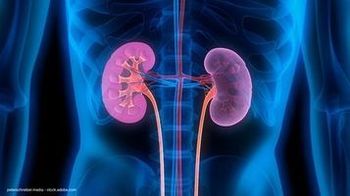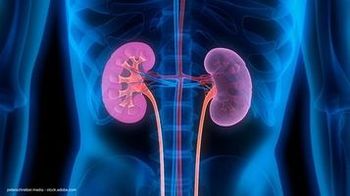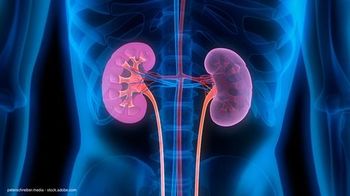
Phase III data affirm advanced PCa agent's benefits post-chemo
Updated phase III clinical trial results provide further evidence that oral abiraterone acetate (ZYTIGA), which was recently approved by the FDA, is well tolerated and has significant clinical benefit in men failing previous intervention for metastatic castration-resistant prostate cancer, according to a multicenter study.
Updated phase III clinical trial results provide further evidence that oral abiraterone acetate (ZYTIGA), which was recently approved by the FDA, is well tolerated and has significant clinical benefit in men failing previous intervention for metastatic castration-resistant prostate cancer, according to a multicenter study.
First author Fred Saad, MD, of the University of Montreal Hospital Center, spoke on behalf of the investigators for COU-AA-301, a randomized, double-blind, placebo-controlled trial enrolling 1,195 patients at 147 centers in 13 countries. Eligible patients had to show disease progression after docetaxel (Taxotere)-based treatment and no more than one other prior cytotoxic chemotherapeutic regimen, and they were randomized 2:1 to receive abiraterone, 1,000 mg, plus prednisone, 5 mg daily, or placebo plus prednisone, 5 mg.
Previously reported top-line results from a pre-specified interim analysis showed a highly statistically significant difference favoring abiraterone over placebo for the primary efficacy endpoint of overall survival (14.8 months vs. 10.9 months; 35% risk reduction in overall mortality). Findings from analyses of time to PSA progression (TTPP), radiologic progression-free survival (rPFS), and objective response also showed highly significant differences favoring abiraterone.
Compared with the controls, men treated with abiraterone had a 42% longer TTPP (10.2 months vs. 6.6 months) and 33% longer rPFS (5.6 months vs. 3.6 months). Among men with measurable disease, abiraterone treatment increased the rate of objective response 5.1-fold (14% vs. 2.8%), Dr. Saad reported.
"These are extraordinary efficacy outcomes that, in my opinion, are not only statistically significant but also clinically significant and almost unheard of in men with such advanced disease," Dr. Saad said. "The safety data in this group of heavily pretreated men is also very positive.
"Given the limited treatment options available for men with castration-resistant prostate cancer, especially in those who have failed docetaxel, abiraterone acetate should give urologists and patients with prostate cancer something to celebrate."
As expected, rates of mineralocorticoid-related adverse events (hypokalemia, fluid retention, and hypertension) were higher among abiraterone-treated patients compared with controls. However, rates of grade 3/4 mineralocorticoid-related adverse events ranged only from 1.3% to 3.8%.
Newsletter
Stay current with the latest urology news and practice-changing insights — sign up now for the essential updates every urologist needs.





